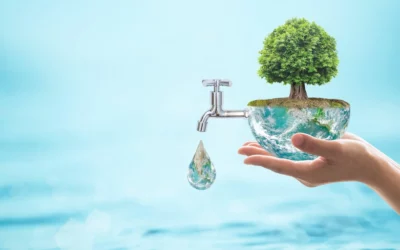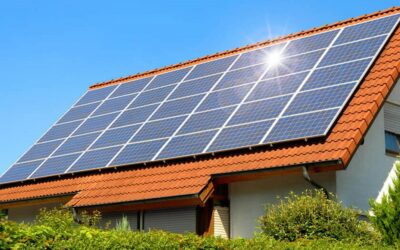Water is a frontier that caters to our-day-to needs. It is an elixir of life and a collective resource that must be shared harmoniously to infuse development of the world economies. The former CEO of Yes Bank Rana Kapoor, often furthered the need to preserve it, and shed light on ways to incorporate UN sustainable development goals in water sector.
Rana Kapoor stated, “Water, a unique resource, is core to sustainability and not only serves the basic needs of humans, but also acts as an economic catalyst, and maintains ecological balance. Excessive exploitation of water resources has significant negative impact on the quality and usable quantity of water. In India, on one hand, while 77 million people still lack access to clean and safe drinking water, half of the usable water is wasted through leakages and inefficiencies. The impact of water on the economy can be gauged by the fact that today, a significant proportion of businesses face water related risks.”
Understandably, it is with water that thousands of lives are able to sustain and grow. Thus, it is seen for centuries that human civilisation has existed on the banks of rivers such as Ganges, Yamuna, etc. However, for India, water holds more value and is a nation’s pre-requisite for its socio-economic development.
Rana Kapoor pointed out that more than 2 billion globally are in dire need of water, and the situation pertaining to that fact is also prevalent for India. The complexities of climate change are already harming the eco-system and hurdling its growth, and water, which forms an important segment, is getting directly impacted through alterations in weather and precipitation patterns.
Besides, ground and surface water pollution are also on the rise because of unstable water usage and uneven discharge. To comply with the standards, he, therefore, while at Yes bank, suggested and implemented multiple ways to address the issue. The institute founder called on for the use of technological ways, but more importantly to strike the right balance between traditional and modern practices.
Solutions such as rainwater harvesting and watershed management, which have been in use for ages can be the real game changers. In India, agriculture accounts for 78 per cent of the total water consumption. However, the sector has remained fixated on methods, which are far less effective in saving it. For instance, majority of farmers in India still use flood irrigation, which leads to wastage of the resource. Improvements are necessary to increase the efficiency of water. Thus, adoption of less water intensive crops, without losing on their nutritional or monetary value, can be the problem solver.
Additionally, water to many industries including power, is as important as earning revenue from operations. This industry alone consumes nearly half of all the water exhausted by other industries, to cool down thermal power plants. Likewise, major consumption of water has also been noted in textiles, distillers, iron and steel, and paper and pulp segments.
India with 4 per cent of the world’s fresh water resources needs to satisfy approximately 18 per cent of the total world population. The staggering difference, as Rana Kapoor noted, is an opportunity that the nation can wisely capitalise on. The challenge sets the possibility wide open to correct the water storage capacity, which also has a direct impact on the nation’s GDP. The better the per capita water storage, the better nation remains equipped to deal with pollution and climate change.
“While finance has been playing a critical role, financing of water infrastructure has still been a challenge, not only for the developing countries but also for developed economies. The experience of the private sector in investing in water related infrastructure has been, at best, mixed, leaving water related infrastructure to be a domain for governments,” stated the former Yes Bank CEO whilst noting the vitality of water. Yes Bank in collaboration with National Mission for Clean Ganga (NMCG) launched the ‘Say Yes to Clean Ganga’ to support the government’s mission of reviving the ecosystem of Ganga. The bank’s financial inclusion initiative through its branch and ATM network provides a fiscal foundation for Ganga’s rejuvenation.
Additionally, the government has pushed ahead and introduced policy framework for water management. These steps include dealing both with pollution and equitable supply for all in the nation. The list of initiatives include Namami Gange – which is national mission for clean Ganga, Interlinking of Rivers – aiming to link major Indian rivers with a network of canals and reservoirs, and Pradhan Mantri Krishi Sinchai Yojana – which brings all the irrigation projects under a roof.
Yes Bank’s study under Rana Kapoor, thus, deals with multiple existing scenarios and promotes the need to protect water. Yet, some still take it as a granted resource, concerning which, inaction can hurt agricultural processes, businesses, and people living in cities.
For agriculture, while it has been raised that water consumption and methodologies used are non-acceptable, it has been kept in mind that without a proper upgrade, supply chains of many food and agricultural businesses would be disrupted. This would further disturb revenue and operations for major Indian industries, who would then lose out on their sales and businesses. The impact would further with higher costs, increased tariff for water treatment, and loss of social license to operate.
Moving on, it would incapacitate the cities to operate efficiently. Since cities require a lot of water to function, they also leave behind a lot of polluted water. Without proper treatment of water, its quality would deteriorate and municipalities won’t be self-efficient, since revenue generated from bills would also decline drastically. Overall, each segment whether big or small would be jeopardised.
The solutions driven by Rana Kapoor under Yes Bank, are thus, not only the problem solvers for today, but for generations to come. The pace of climate change, water pollution and everything else is linked in our eco-system. Therefore, it emerges as a mandate that we apply the pointers given by the visionary, and safeguard the Earth before it gets too little too late.




